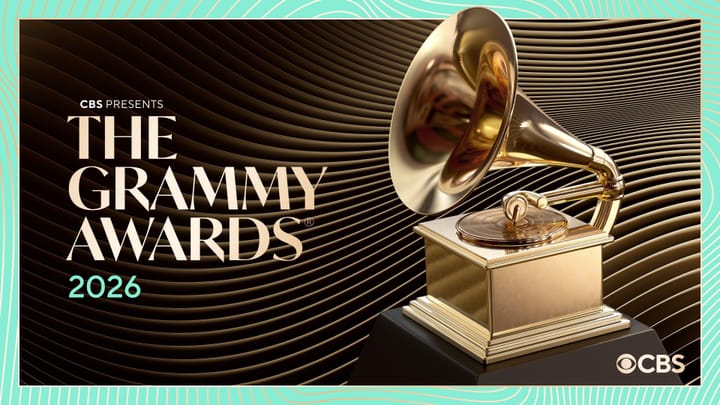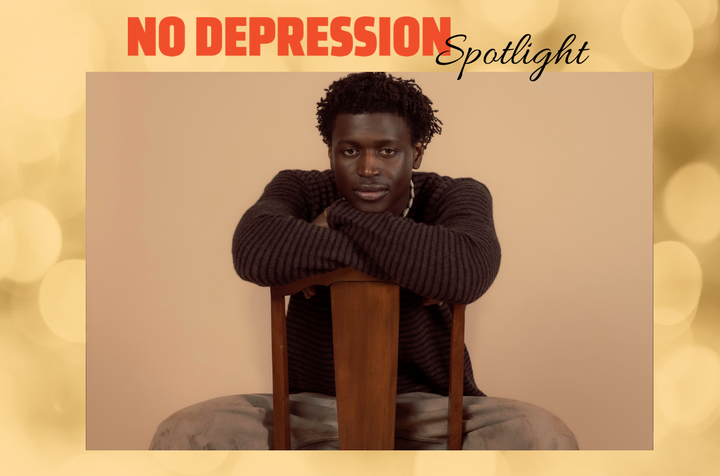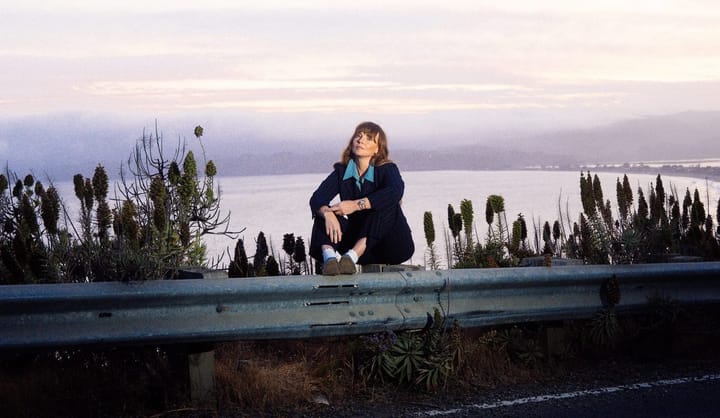Even if you've never seen him do the GQ as the suit-and-tied host of PBS' "Sessions At West 54th", you may find it difficult to picture John Hiatt a-sittin' and a-rockin' on his back porch playing his perfectly good acoustic guitar. Yes, he and his wife live in an old farmhouse outside of Nashville with a mess of dogs, horses and cats, surrounded by enough acreage to make the city seem a lot further than 30 miles. And yes, his songs have been given a down-home spin by a wide assortment of country artists, including Conway Twitty, Ronnie Milsap and Asleep At The Wheel.
But from his early days sneering through hard-edged rockers such as "Slug Line" and "String Pull Job" to his more recent triumphs as a converter and inverter of roots styles, Hiatt has radiated a roustabout spirit more suited to a roadhouse setting, soul revue or South Side blues bar. And no amount of wholesome picking can nurture the twisted romanticism and biting wit found in Hiatt songs such as "She Loves The Jerk" or lines like "I ain't no porcupine, take off your kid gloves" (from "Thing Called Love").
It was in Nashville, though, that this son of Indianapolis began his career as a teenager writing songs and playing in a band called White Duck. And since returning to the South in 1985, following a hellish stint in Los Angeles during which he nearly did himself in with alcohol and drugs and was rocked by his first wife's suicide, he has cottoned to a down-home existence in reordering his life and getting his dependably undependable career on track.
Now, after his split from Capitol, his fifth major label (following Epic, MCA, Geffen and A&M), Hiatt is returning home in a stylistic sense with his mostly acoustic new album, Crossing Muddy Waters, a one-shot for Vanguard Records, which is releasing it in retail outlets, and EMusic.com, which is selling it on a computer screen near you in the MP3 format. "I see this record as one of the clearer examples of what initially got me going in music," he said. "It has a little of what Mississippi John Hurt meant to me, a little Dylan, a little Howlin' Wolf, some of that jug-band thing."
Most of the songs did, indeed, emerge from regular back-porch sessions -- from "sitting there making music, fingerpicking in waltz time, with nothing to rehearse and no more than three chords to play around with," he says. The album grew out of a series of demos he made last spring with mandolinist/guitarist David Immergluck before having a cyst on his right vocal cord removed (the surgery restored his range and stamina, which had been impaired for three years).
Teamed on the finished recording with Immergluck and bassist Davey Faragher, who play in one of his gallery of terrific backing bands, the Nashville Queens, Hiatt sounds more relaxed and in his element than he has in years -- partly because, he says, he didn't have to follow any "great masterminded plans or deal with a record A&R guy saying we need three tracks for radio."
In its relaxed emotion and crisp, unencumbered sound, Crossing Muddy Waters resonates with parts of Slow Turning (1988) and Walk On (1995), the first Hiatt album to be transformed by Immergluck's elegant, ringing mandolin chords. But in its airy distillation of sadness and its firm resolve, it is like nothing Hiatt has done before. Those seeking what he calls the "smartass singer-songwriter" in him will listen in vain. Relationships sunder, loved ones pass, positive feelings fade, and not a smirk emerges. "I had a couple of those songs -- you know, the kind where the whole point seems to be that I know something and you don't," he says. "But they wouldn't fit. There was no room for the wiseass."
Back in his "out of control" days, Hiatt apotheosized pain with the lacerating melodrama of "My Edge Of The Razor". Later, remarried and in the security blanket of his new family, he opened himself up to the pain of being left behind on "Alone In The Dark". Lost in "extreme self-pity and frozen fear," he sang, "I rub my nose in it babe/'Til the roses smell just like death."
Now, on the title track of Crossing Muddy Waters, written five years ago, he maintains a heartbreaking detachment in describing the emotional fallout of his first wife's suicide. "Like a rusty shot in a hollow sky, she left me without warning/Sooner than the dogs could bark, faster than the sun broke," he sings, exuding the clear-eyed strength of finally having come to terms with the tragedy. Transcending the bitter feelings that marked his failed marriage, he extends the most profound sympathy to his late spouse, envisioning her "crying for her baby child, crying for her husband" as she journeyed toward the next world -- a journey poetically captured by the title image. "I love old Appalachian laments, where the music is almost happy and the lyrics rip your living soul out," he says.
Now 48, Hiatt has come a long way from the young artist with whom producers played generic roulette, here dropping him into the slot of sensitive singer-songwriter, there giving him a spin as a stateside Elvis Costello. Having steadily grown as a singer, he approaches roots styles with a blend of grit and twang that is very much his own. He embodies the close ties between country and soul. Where some white blues devotees imitate Howlin' Wolf to cartoonish effect, Hiatt uses his guttural yowl to cast a spooky elegiac shadow on songs such as "Mr. Stanley", written shortly after the death of his father-in-law.
Hiatt also has come a long way from the days he dosed himself on so much booze and coke that he couldn't move. An integral part of his cure was the love of Nancy, the Nashville woman who became his second wife, and the new family he formed with her stepson, his daughter by his first wife, and the daughter he had with Nancy. On what many people, including the artist, regard as his breakthrough album, Bring The Family (1987), he expressed the redemptive power of home and hearth -- not with an outpouring of self-satisfaction or sentimentality, but a risky, go-for-broke intensity in asserting his perpetual need to understand the human heart and conquer his demons.
"When you have a stable environment going for you, it gives you the courage to look at yourself and put what you see into your songs," he said. "That takes balls, creating art informed by your life. A lot of people don't want to know who they are. When they look in the mirror, they look past themselves. But what are the tough times good for it not to learn something, if only that you don't know shit?"
Bring The Family came at a crucial juncture for Hiatt. After discovering he had been dropped by Geffen following his move east, he considered selling the publishing rights to his song catalog. The people who administered his publishing convinced him to retain control, and Bug Music fronted the downpayment on his Nashville home. Subsequently, he was asked to record an album for England's upstart Demon label, run by Jake Rivera, who managed Costello and Nick Lowe and lent his motorcycle to Hiatt for the cover of Riding With The King (1983).
The budget was small. For what he thought would be a throwaway album, Hiatt drafted John Chelew, who had booked him as a solo act at McCabe's, a Santa Monica guitar store and club, as producer. Determined to capture the edginess of Hiatt's live performances, Chelew assembled the dream band of Lowe, Ry Cooder and Jim Keltner, with whom Hiatt would go on to record and perform (and tangle) as Little Village. With Cooder departing from his usual eclectic approach to play killing rock 'n' roll slide guitar, Bring The Family soared. As on Crossing Muddy Waters, Hiatt soared in the absence of commercial fixers. Only after the album was recorded did A&M win a bidding competition for rights to it.
With Chelew again producing, Hiatt next went into the studio with a rather oddly matched all-star cast including session ace David Lindley, X's John Doe and Fairport Convention veteran Dave Mattacks. Unhappy with the results, which struck him as too imitative of Bring The Family, he rejected them, much to Chelew's dismay.
With old pro Glyn Johns at the helm, Hiatt recorded the more laid-back Slow Turning, including the sweetly lilting "Georgia Rae" for his younger daughter, and then the slick but winning Stolen Moments. That album boasted the buoyant "Child Of The Wild Blue Yonder" and "The Rest Of The Dream", one of the most touching songs ever sung by a rock father. "When you couldn't find the light at the top of the stairs/When you cried in the night/Well, you knew they were there," Hiatt sings, signifying parental love. His ultimate promise: "The old man will come through for you."
For all the personal and artistic strides he has made since embracing the family life, Hiatt disqualifies himself as a rehab poster boy. "I've been sober for 16 years, but I have all kinds of other problems," he said. "I continue to screw up. I'm still a freakin' nut. I remind myself of the character in those Updike novels [the Rabbit series]. I'm that guy. I'm driven by 100 forms of fear. Typical crap. I'm not good enough. I'm a fake. I take more than I give. I'm losing my hair. I'm not smart. That's why music is my salvation. It gets me past that crap, gets me out of my head."
His public profile has never been higher. The acclaimed "Sessions At West 54th", on which he replaced David Byrne in the host's chair after appearing on the show as a performer, has broadened his audience. And even for someone who has had dozens of his compositions covered, by everyone from Three Dog Night to Bonnie Raitt to Bob Dylan to Paula Abdul, having Eric Clapton and B.B. King recently remake the title track of Riding With The King as the title track of their first-ever collaboration ranked as a major coup -- especially when their version took off commercially.
Never mind that the tune, which Hiatt described as a "slithery ghost type of deal," was written with Elvis Presley in mind. When Clapton, with whom he had never spoken, called and asked him to tailor the lyrics for B.B., Hiatt tweaked the bridge, happy to trade one King for another. Having had his compositions also appear with increasing frequency on movie soundtracks including Michael and Phenomenon, he is used to letting them fall where they may. "My songs seem to walk along an edge and then fall one way or another, and I like that," he once said in an interview. "I like being on 'Hee Haw', and I like the fact that Iggy Pop's got a tune of mine on his new album."
But Hiatt's rising profile meant little to the new powers that be at Capitol, which, during the golden era of executive Gary Gersh, catered to distinguished singer-songwriters like Hiatt but now looks for excuses to shed them. Midway through recording his first album in a dozen years with the Goners, the Louisiana band featuring slide guitar hero Sonny Landreth, Hiatt got the cold treatment from label brass. "They said they weren't getting it," he recalls. "It was put at a standstill." Not getting them, he gained control of the material and took it with him, with plans of getting it released by someone else.
By his own admission, Hiatt is not the easiest guy to work with -- or not work with. Before Little Village came together, only to fall apart, then lose all hope of reuniting when Cooder scored big with Buena Vista Social Club, Nick Lowe took pot shots at Hiatt in the press, saying he was the worst advertisement for giving up drinking. Hiatt also has been known to vent his anger at labels for not making him a bigger star.
That said, he has shown plenty of flexibility in striving to get his music heard by as wide an audience as possible. Partly to relate to the younger set, in 1993 he recruited bassist Faragher and drummer Michael Urbano (then the rhythm section of Cracker) and guitarist Michael Ward (from School Of Fish, and later the Wallflowers) to tour in support of Perfectly Good Guitar. That band, dubbed the Guilty Dogs, threw adult caution to the wind, pinning back ears with their all-out sound (documented on the 1994 Hiatt Comes Alive At Budokan disc).
Hiatt may take bilious aim at record executives who presume to know more about songwriting than songwriters, like the new Capitol president ("I can't remember his name") who advised him to write more choruses that didn't repeat the same thing. On "What Do We Do Now", one of the best songs on the new CD, he offers a choice rebuttal, repeating lines over and over to charged effect. But he understands what a difficult time this is for "adult alternative" acts such as himself.
"Big labels really are not in the music business anymore," he said. "A big shift has occurred. Now, they're committed to the entertainment business, to making the most sales in the shortest period of time. They couldn't wedge me in between Limp Bizkit and Britney Spears."
Offered a chance to record for the revived Vanguard in the aftermath of the Capitol misadventure, he immediately warmed to the possibilities. "I love the fact that the album is on Vanguard," he said. "When I was 15 or 16, Vanguard and Verve were the two labels that counted the most. Vanguard had John Hurt and Odetta and all these other great players. It was committed to really exposing all the riches of American folk tradition."
Before he was ever aware of folk music, he was playing guitar at age 11 in a rock band called the 4/5ths. His influences included Mitch Ryder, the Shondells and Little Stevie Wonder. "I played 'Fingertips (Part 2)' over and over in my basement for a year," he said. By the time he was 12, he was doing his own songs.
"My idea of a rock band was decidedly American until Ed Sullivan. Seeing the Beatles, the Yardbirds, the Animals and these other really cool English bands changed everything. In tiny Indianapolis, I got to see the Yardbirds with Jimmy Page and Jeff Beck. Here was this little 14-year-old seeing Jimmy Page playing his Les Paul with a fucking violin bow and going, what the fuck is that? I hadn't gone into my Being John Malkovich doorway and discovered where all that music came from.
"It was the British bands that led me to the blues. That's why Nick Lowe and I got along so well, I think. He was a kid in north England who had blues music blow his mind and make him feel really white. I started with British bands, went right to Bob Dylan doing 'Like A Rolling Stone' and found the roots of everything in all these white guys playing Mississippi John Hurt and Muddy Waters and the electric thing out of Chicago. I totally responded."
In gravitating to the blues, he never held his whiteness against himself. "I was a screwed-up Catholic fat kid," he said. "I had breasts. When I went swimming, I was ridiculed by my peers. So I had the blues. I didn't have to learn about that.
"For me it's an internal thing. Anybody can put on a dark suit and sunglasses and go play the blues. But that doesn't mean they can really play it. It's that ring of timelessness, the weight of it that makes it so special. It's something that's not gonna go away. I aspired to that kind of thing, though not consciously."
Where Crossing Muddy Waters will lead is up in the air. Hiatt, who has been touring with the Goners, was planning to go into the studio with them for another week to complete their interrupted album, which he hopes to get released next spring. He'll also tour in support of the Vanguard album. And if the funding for another season of "Sessions At West 54th" is raised (at this writing, it hadn't been), he'll likely return as host. Whatever the future holds, his back porch won't stop calling him.
"I really dig not being tied to any label," he said. "It's a great feeling, having all this freedom. I write a lot of songs, and being in this unfettered state allows me to really hit my stride. My creative process is similar to the way [Bring The Family and Crossing Muddy Waters] got made. There wasn't a lot of planning. They weren't part of a typical record company dance. On the new album, there wasn't even a producer. We rolled the tape and let it be. We let the magic happen."
Lloyd Sachs, entertainment critic of the Chicago Sun-Times, admits to having used John Hiatt's "Back To Normal" as a post-breakup pick-me-up when he was a much younger man. Informed of this, the composer was greatly amused.




Comments ()